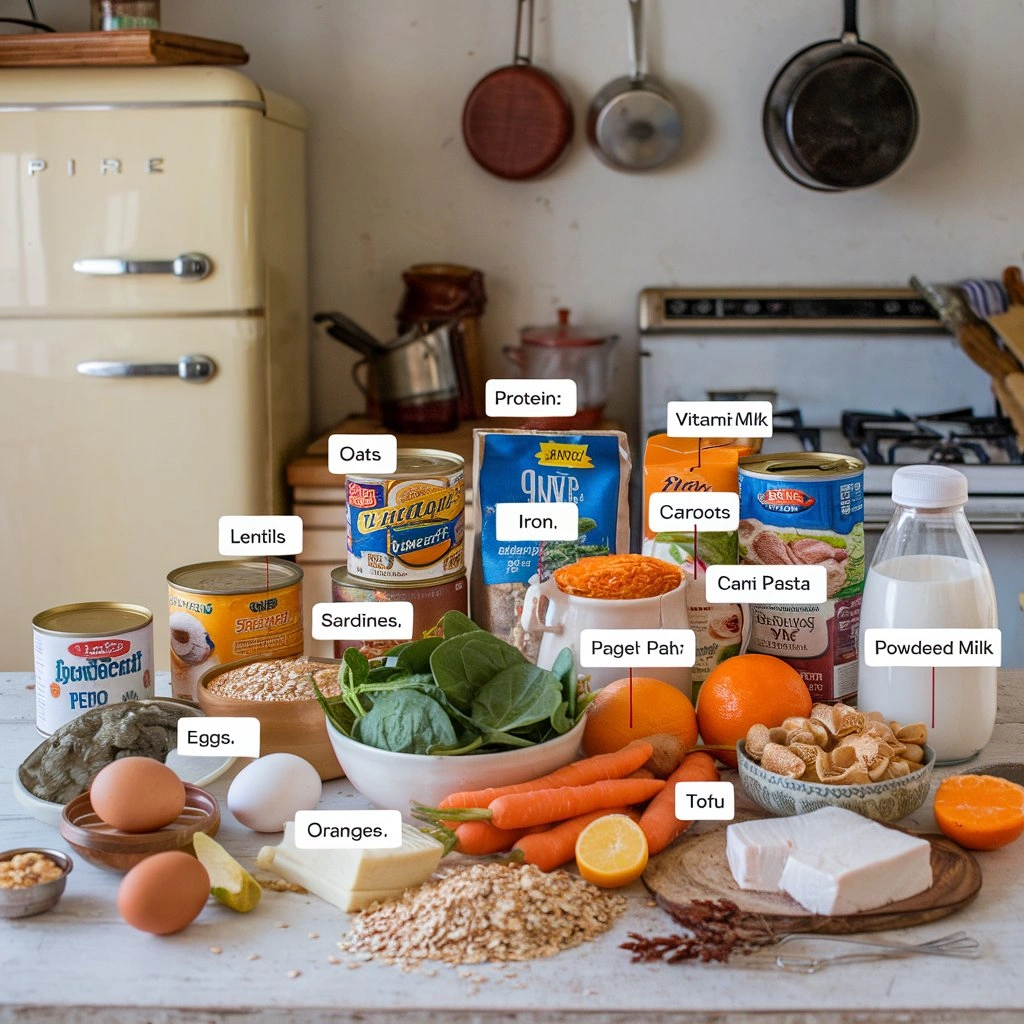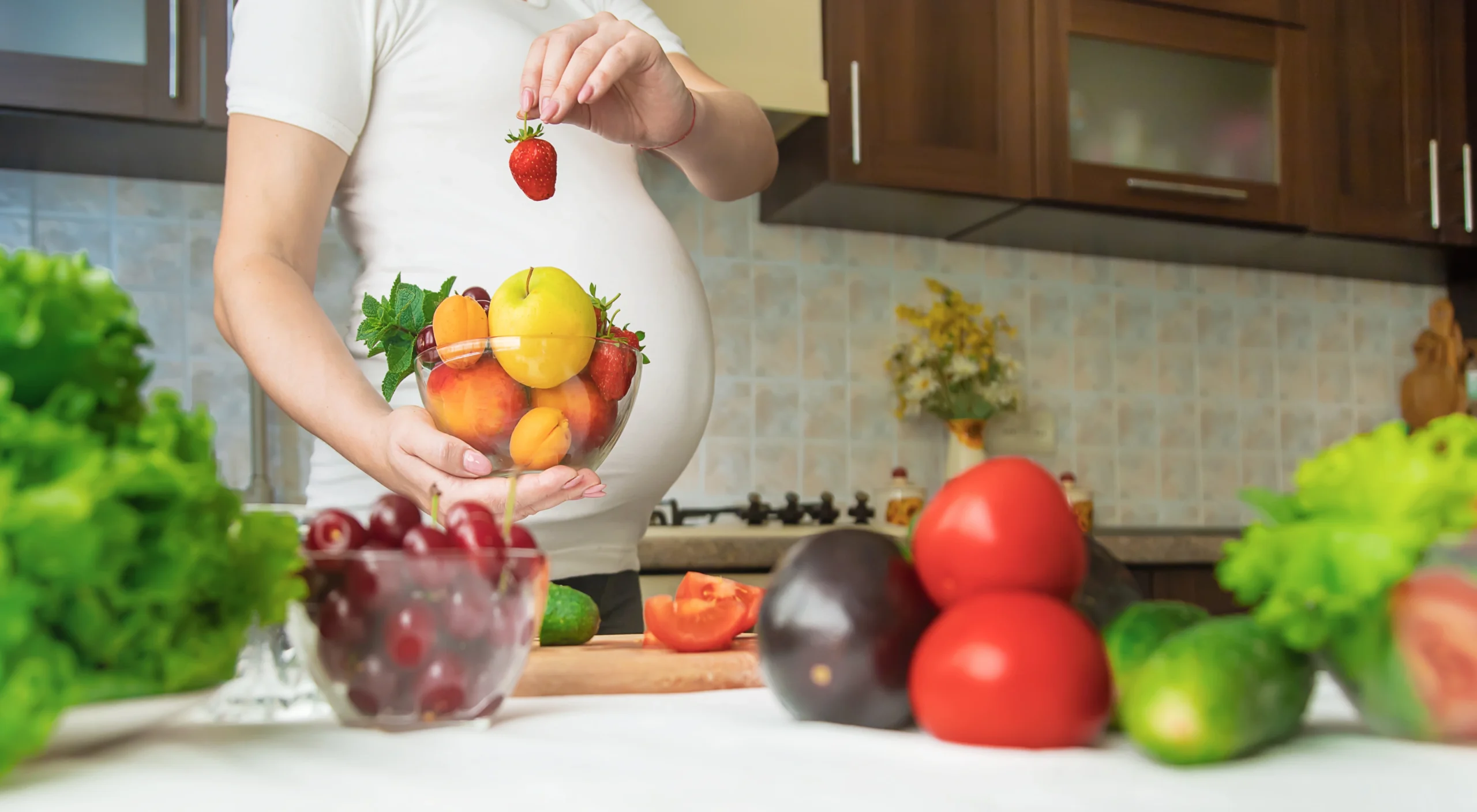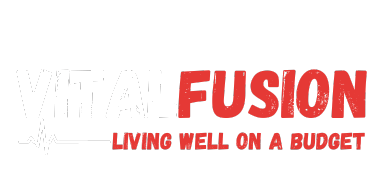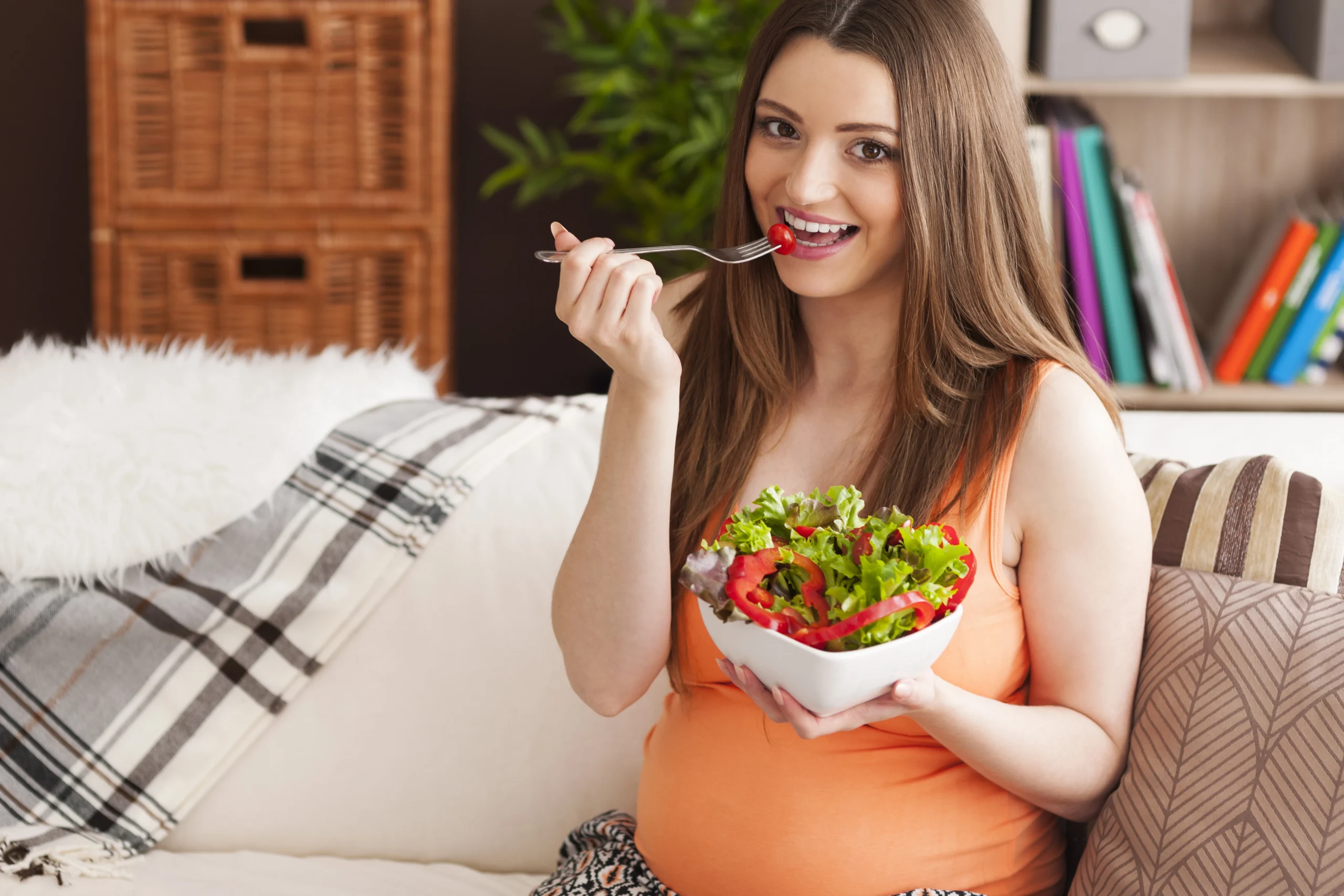Eating well during pregnancy (Pregnant Women) is essential for the health of both the mother and the growing baby. It’s important to focus on foods that provide the necessary nutrients to support development and maintain energy levels. Here are ten healthy eating tips that can help pregnant women make the best dietary choices for themselves and their babies.
Key Takeaways
- Include dairy products like yogurt for extra calcium and protein.
- Add legumes to your meals for fiber and important vitamins.
- Sweet potatoes are rich in beta-carotene, vital for baby growth.
- Incorporate salmon for omega-3 fatty acids that support brain development.
- Eat a variety of fruits and vegetables to ensure a balanced diet.
Table of Contents
1. Dairy Products
Dairy products are essential during pregnancy because they provide important nutrients that support both the mother and the baby. Foods like milk, cheese, and yogurt are excellent choices. They are rich in high-quality protein and are the best sources of calcium, which is crucial for your baby’s bone development.
Nutritional Benefits of Dairy Products
| Nutrient | Importance during Pregnancy |
|---|---|
| Calcium | Essential for bone health |
| Protein | Supports growth and development |
| Vitamin B12 | Important for brain health |
| Iodine | Supports thyroid function |
- High-Quality Protein: Dairy contains two types of protein: casein and whey, both of which are beneficial for your health.
- Digestive Health: Yogurt, especially Greek yogurt, can be particularly helpful as it often contains probiotics, which aid digestion.
- Lactose Intolerance: If you’re lactose intolerant, you might still enjoy yogurt, especially probiotic varieties. Always consult your doctor before trying new foods.
Including dairy in your diet can help you meet your increased protein and calcium needs during pregnancy.
In summary, incorporating dairy products into your meals can greatly benefit your health and your baby’s development. Consider adding yogurt smoothies or cheese to your snacks for a nutritious boost!

2. Legumes
Legumes are a fantastic choice for pregnant women. They are packed with nutrients that are essential for both the mother and the baby. Here are some key benefits of including legumes in your diet:
- Rich in Folate: Folate is crucial for preventing neural tube defects in the developing baby.
- High in Fiber: This helps with digestion and can prevent constipation, a common issue during pregnancy.
- Good Source of Protein: Legumes provide a plant-based protein option, which is important for muscle development.
Nutritional Benefits of Common Legumes
| Type of Legume | Folate (mcg) | Fiber (g) | Protein (g) |
|---|---|---|---|
| Lentils | 358 | 15.6 | 18.0 |
| Chickpeas | 172 | 12.5 | 14.5 |
| Black Beans | 256 | 15.0 | 15.0 |
Including legumes in your meals can help ensure you get a variety of nutrients. They are versatile and can be added to salads, soups, or even made into dips.
Incorporating legumes into your diet is a simple way to boost your nutrition during pregnancy. Remember, a variety of foods is key to a healthy pregnancy!
3. Sweet Potatoes
Sweet potatoes are a fantastic food choice during pregnancy. They are packed with beta-carotene, which your body turns into vitamin A. This vitamin is crucial for your baby’s growth and development. However, it’s important to note that too much vitamin A from animal sources can be harmful.
Health Benefits of Sweet Potatoes
- Rich in Fiber: Helps keep you full and supports digestive health.
- Blood Sugar Control: Reduces spikes in blood sugar levels.
- Nutrient Dense: Provides essential vitamins and minerals for both you and your baby.
How to Include Sweet Potatoes in Your Diet
- Breakfast: Use them as a base for avocado toast.
- Lunch: Add roasted sweet potatoes to salads.
- Dinner: Mash them as a side dish or include them in casseroles.
Sweet potatoes are an excellent source of beta-carotene, which your body transforms into vitamin A. Vitamin A is important for the growth and differentiation of cells in your growing baby.
In summary, sweet potatoes are not just delicious but also a nutritional powerhouse that can greatly benefit you and your baby during pregnancy.
4. Salmon

Salmon is a fantastic choice for pregnant women. Eating salmon during pregnancy can provide essential nutrients that support fetal development. This fish is packed with omega-3 fatty acids, which are crucial for your baby’s brain and eye development. Here are some important points to consider:
- Nutritional Benefits: Salmon is rich in protein, vitamin D, and omega-3s.
- Safe Choices: Opt for low-mercury options like salmon, sardines, and anchovies.
- Cooking Tips: Always cook salmon thoroughly to avoid any health risks.
| Nutrient | Amount per 3.5 oz (100g) |
|---|---|
| Protein | 25 g |
| Omega-3s | 2.3 g |
| Vitamin D | 570 IU |
Always check where your salmon is sourced from. Fresh salmon is preferable, as smoked varieties can carry risks. Avoid raw or undercooked salmon to ensure safety during pregnancy.
In summary, including salmon in your diet can be a delicious and nutritious way to support your pregnancy journey!
5. Eggs

Eggs are a fantastic food choice during pregnancy. They provide a little bit of almost every nutrient you need. A large egg has about 71 calories and 3.6 grams of protein, along with many vitamins and minerals that are essential for both you and your baby.
One of the key nutrients in eggs is choline, which is crucial for your baby’s brain development. A single whole egg contains around 147 milligrams of choline, helping you get closer to the recommended intake of 450 mg per day while pregnant. This nutrient is important for preventing developmental issues in the brain and spine.
Health Benefits of Eggs
- Rich in Protein: Eggs are a great source of high-quality protein, which is vital for your baby’s growth.
- Packed with Nutrients: They contain vitamins A, D, E, and B12, as well as minerals like iron and selenium.
- Versatile: You can enjoy eggs in many ways, such as boiled, scrambled, or in an omelet.
Cooking Tips
Here are some healthy ways to prepare eggs:
- Boiled: A simple and nutritious option.
- Scrambled: Add some veggies for extra nutrients.
- Omelets: Fill with spinach, tomatoes, or cheese for a tasty meal.
Eggs are a powerhouse of nutrition, making them an excellent choice for pregnant women. They support the development and well-being of your baby.
6. Leafy Greens
Leafy greens are a vital part of a healthy diet during pregnancy. These vegetables are packed with essential nutrients that support both the mother and the developing baby. Here are some key benefits of including leafy greens in your meals:
- Rich in Iron and Folate: Dark green leafy vegetables, like spinach and kale, are excellent sources of iron and folate, which are crucial for your baby’s development.
- High in Fiber: They help prevent constipation, a common issue during pregnancy.
- Vitamins and Minerals: Leafy greens provide vitamins A, C, and K, as well as calcium and potassium.
| Leafy Green | Key Nutrients |
|---|---|
| Spinach | Iron, Folate, Vitamin K |
| Kale | Calcium, Vitamin C, Antioxidants |
| Swiss Chard | Magnesium, Vitamin A |
Eating a variety of leafy greens can help ensure you get a wide range of nutrients necessary for a healthy pregnancy.
Incorporate these greens into your diet by adding them to salads, smoothies, or soups. You can also try sautéing them with garlic for a delicious side dish!
7. Lean Meat
Lean meats, such as chicken, turkey, and pork, are great sources of high-quality protein. They provide essential nutrients that are important during pregnancy. Here are some benefits of including lean meat in your diet:
- Rich in Iron: Lean meats are packed with iron, which is crucial for increasing blood volume during pregnancy.
- B Vitamins: They also contain B vitamins, which help in energy production and brain development.
- Choline Source: Lean meats provide choline, important for your baby’s brain health.
Nutritional Benefits of Lean Meat
| Nutrient | Importance during Pregnancy |
|---|---|
| Protein | Supports tissue growth |
| Iron | Prevents anemia |
| Choline | Aids brain development |

Including lean meat in your meals can help meet your increased nutritional needs during pregnancy. Lean red meat can be especially beneficial, as it helps boost iron levels, which are vital for both you and your baby.
When preparing meals, consider pairing lean meats with vitamin C-rich foods, like bell peppers or oranges, to enhance iron absorption. This can be a simple way to ensure you’re getting the most out of your meals!
8. Berries
Berries are not just tasty; they are also packed with nutrients that are great for pregnant women. These fruits are rich in vitamins, fiber, and antioxidants. They help keep you hydrated and provide essential nutrients without adding too many calories.
Health Benefits of Berries
- Fetal Brain Development: Berries like blueberries and blackberries can aid in fetal brain development.
- Prevent Birth Defects: Eating berries may help prevent certain birth defects.
- Treat Constipation: The fiber in berries can help with digestion and prevent constipation.
Best Berries to Include
Here are some of the best berries to enjoy during pregnancy:
- Blueberries
- Raspberries
- Strawberries
- Blackberries
- Goji Berries
Quick Snack Ideas
- Add berries to your yogurt or oatmeal.
- Blend them into smoothies for a refreshing drink.
- Enjoy them fresh as a quick snack.
Including berries in your diet can be a delicious way to boost your health during pregnancy!
9. Whole Grains
Whole grains are an important part of a healthy diet during pregnancy. They are different from refined grains because they contain all parts of the grain, which means they are richer in nutrients. Whole grains like quinoa, oats, and flaxseed can support fertility and hormonal health, making them ideal for pregnancy planning.
Benefits of Whole Grains
- High in Fiber: Whole grains help with digestion and can prevent constipation, a common issue during pregnancy.
- Rich in Nutrients: They provide essential vitamins and minerals, including B vitamins, iron, and magnesium.
- Energy Boost: Whole grains are a great source of energy, which is important for pregnant women.
Recommended Whole Grains
Here are some whole grains to include in your diet:
| Grain | Nutritional Benefits |
|---|---|
| Quinoa | High in protein and fiber |
| Oats | Good source of iron and B vitamins |
| Brown Rice | Provides magnesium and fiber |
| Barley | Rich in antioxidants and fiber |
| Whole Wheat | Contains more nutrients than white flour |
Including whole grains in your meals can help ensure you and your baby get the nutrients you need for a healthy pregnancy.
Incorporating whole grains into your diet can be easy. You can add them to salads, soups, or even enjoy them as a side dish. Try to replace refined grains with whole grains whenever possible for better health benefits!
10. Avocados
Avocados are a fantastic choice for pregnant women. They are packed with healthy fats that are essential for your baby’s growth. These fruits are rich in fiber, vitamins, and minerals, making them a nutritious addition to your diet.
Nutritional Benefits
- High in Healthy Fats: Avocados contain monounsaturated fatty acids, which are good for heart health.
- Rich in Potassium: They have more potassium than bananas, which can help reduce leg cramps.
- Source of Folate: Folate is crucial for preventing neural tube defects in babies.
Ways to Enjoy Avocados
- Guacamole: A classic dip that pairs well with veggies or whole-grain chips.
- Salads: Add slices to your favorite salad for extra creaminess.
- Smoothies: Blend them into smoothies for a rich texture.
- Toast: Spread on whole wheat toast for a quick breakfast.
Avocados are a high-calorie food that can help increase fetal weight. They’re also high in healthy fats like omega-9 fatty acids and potassium.
Incorporating avocados into your meals can provide essential nutrients for both you and your baby, making them a must-have during pregnancy!
Final Thoughts on Healthy Eating During Pregnancy
In conclusion, maintaining a healthy diet during pregnancy is vital for both the mother and the baby. By focusing on a variety of nutritious foods, such as fruits, vegetables, whole grains, and lean proteins, expectant mothers can ensure they are getting the essential vitamins and minerals needed for a healthy pregnancy. Remember to stay hydrated and listen to your body’s hunger cues. It’s not just about eating for two; it’s about nourishing both you and your growing baby with the right foods. Following these tips can help create a strong foundation for a healthy pregnancy and a happy baby.
Explore: 10 Healthy Eating Tips for Kids: Making Nutrition Fun
Frequently Asked Questions
What are the best dairy options for pregnant women?
Dairy products like milk, cheese, and yogurt are great choices. They provide protein and calcium, which are important during pregnancy.
Why are legumes important during pregnancy?
Legumes are packed with fiber, protein, iron, and folate. Folate is especially crucial for the baby’s development.
How can sweet potatoes benefit pregnant women?
Sweet potatoes are rich in beta-carotene, which converts to vitamin A in the body. Vitamin A is vital for the baby’s growth.
Is salmon safe to eat when pregnant?
Yes, salmon is safe and provides omega-3 fatty acids, which are important for the baby’s brain and eye development.
What role do eggs play in a pregnant woman’s diet?
Eggs are nutritious and contain choline, which is essential for brain health and development.
How do leafy greens help during pregnancy?
Leafy greens are full of vitamins and minerals, and they also provide fiber, which can help with digestion.






